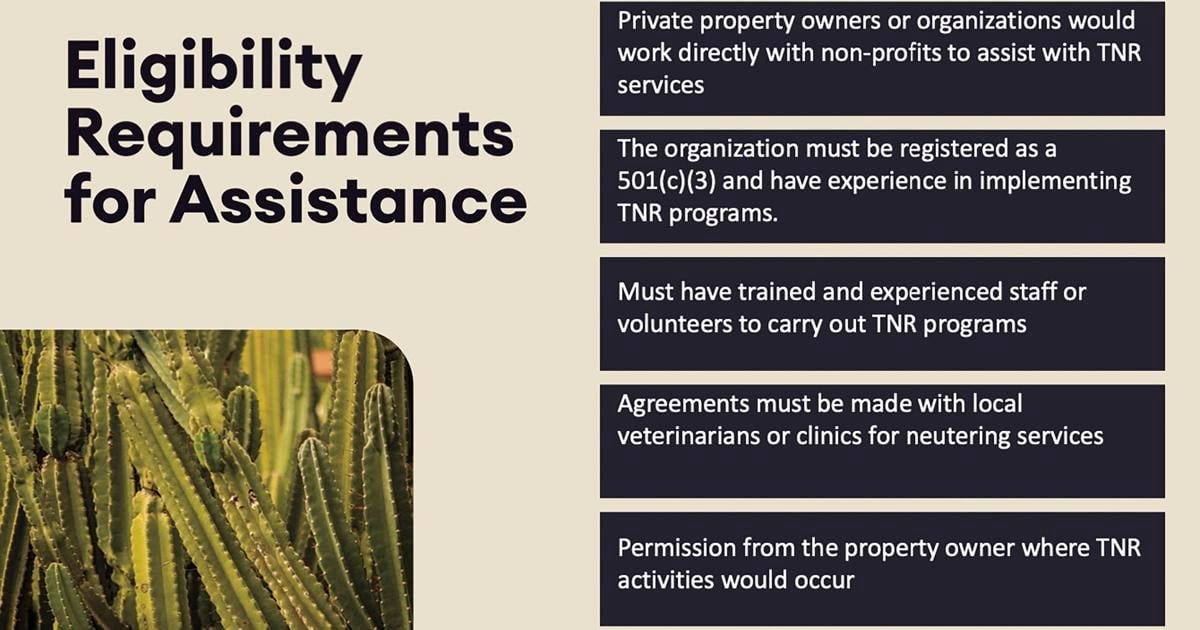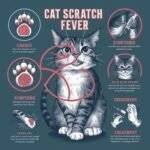Gilbert officials are making good on a promise to partner with local nonprofits on a Trap-Neuter-Return assistance program to control the town’s feral cat population.
Following up on the council’s direction from a public meeting in April, Parks and Recreation Director Robert Carmona presented the plan for a TNR program at a study session last week.
“We’ve talked about TNR a lot quite recently. Just a brief reminder that it is allowed on private property, per the current ordinance, just not allowed on town property,” Carmona said.
The original town ordinance approved by the council in October 2015 made it unlawful to feed or place food for any animal in the Riparian Preserve unless it was to feed the waterfowl or had been authorized by the Parks & Recreation director for specific wildlife rescue and rehab requests.
That ordinance was amended in 2018 to prohibit feeding animals on town property or public rights-of-way, except if authorized by the Parks & Recreation Department director.
Gilbert Police had previously issued citations and had arrested a person for feeding strays in a public right-of-way space.
The TNR program is a step towards wildlife conservation in the town, Carmona said.
“The overall goal is to make sure that we’re protecting wildlife from the impacts of the feral cat population, but also supporting the nonprofits who are managing the feral cat populations,” he said.
TNR is recognized as a humane and effective method to manage the feral cat population in communities. After the cats are sterilized and vaccinated by licensed vets, caretakers can return them to their outdoor colonies and can feed them until the colony dwindles out.
Not returning the fixed cats to their same outdoor area would create a vacuum and allow for new unneutered cat colonies to emerge in their place, causing problems such as yowling during mating season and aggression towards existing wildlife in the area.
The town-assisted TNR pilot will start on Jan. 1 and is specifically designed for local animal rescues, according to Carmona.
“This would be available through the town website, with all the information being there, and as we discussed it would be not to exceed $10,000 that would be requested through the use of contingency funds,” he said.
Officials defined the eligibility requirements of the nonprofits getting assistance, Carmona said.
Private property owners or organizations who want TNR on their property will work directly with the nonprofits, which must be 501(c)(3) registered.
Additionally, they must have experience in TNR and have trained and experienced staff who can carry it out. They also must have agreements with local vets or clinics for neutering services.
The organizations will also be responsible for obtaining permission from private property owners where the TNR activities would take place.
“We would expect the $10,000 would move relatively quickly,” Carmona said. “There’s a couple of different nonprofits that work within this sector, with TNR, so we’re looking at a $1,500 max to at least start, per organization.”
Groups would be reimbursed after producing detailed reports of the TNR activities.
The Parks and Recreation will vet the organizations before disbursing the funds and also keep track of the expenses to make sure that the non-profits can be called upon in the future as well.
The data captured would also help illustrate the progress of the program to council on a monthly basis, Carmona said.
Mayor-elect Scott Anderson wanted the town to communicate the expectations of the pilot program with the nonprofits.
“The last time that they were here and we had discussion about this, they left with what I felt was the impression that it was free-for-all time to do TNR in Gilbert, and I don’t want them to think that,” he said. “I want them to abide by the rules of this program very carefully and monitor them very closely.”
Councilwoman Kathy Tilque wanted to know if the pilot will only run for the town, or it will also involve county islands.
“The way we’re approaching it was really just the Town of Gilbert properties, not town-owned properties, but in private properties within the Gilbert boundaries,” Carmona replied. “But if there’s other direction from the council, we can discuss it.”
Mayor Brigette Peterson also applauded the move.
“It took me four years, but we have a pilot program in place, since I was the one to be called the ‘cat killer’ in 2020, amongst other things,” she said. “I appreciate finally being able to get this across the finish line, at least for a pilot program and $10,000 worth.”
She was also happy that the town is taking the lead on TNR, curbing people going out independently and neutering cats, and accidentally sterilizing family pets.
https://bloximages.chicago2.vip.townnews.com/gilbertsunnews.com/content/tncms/assets/v3/editorial/8/1c/81c3a78c-b40e-11ef-9c2a-537b23aa6b17/67535ad324316.image.jpg?crop=1929%2C1013%2C0%2C30&resize=1200%2C630&order=crop%2Cresize
2024-12-12 07:00:00





